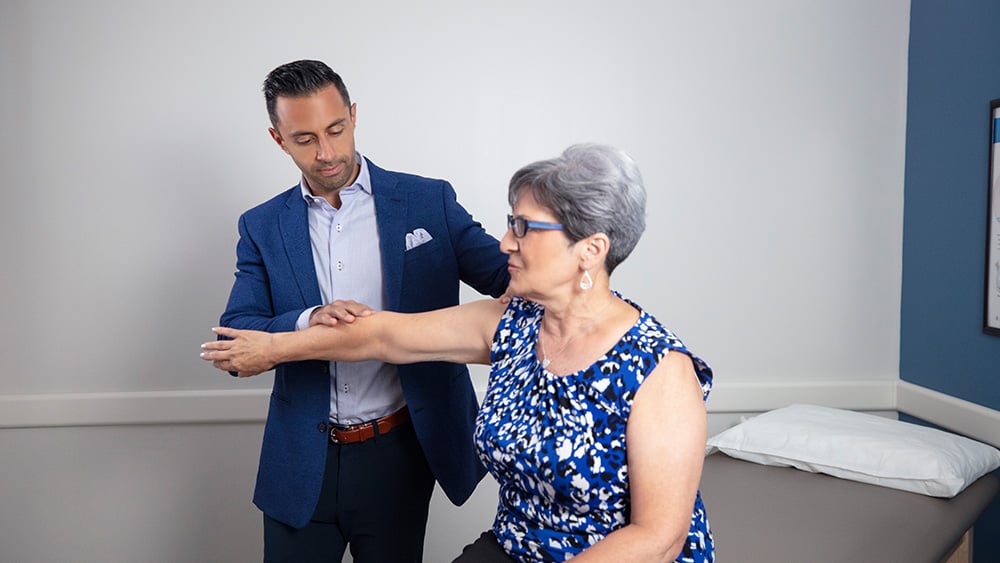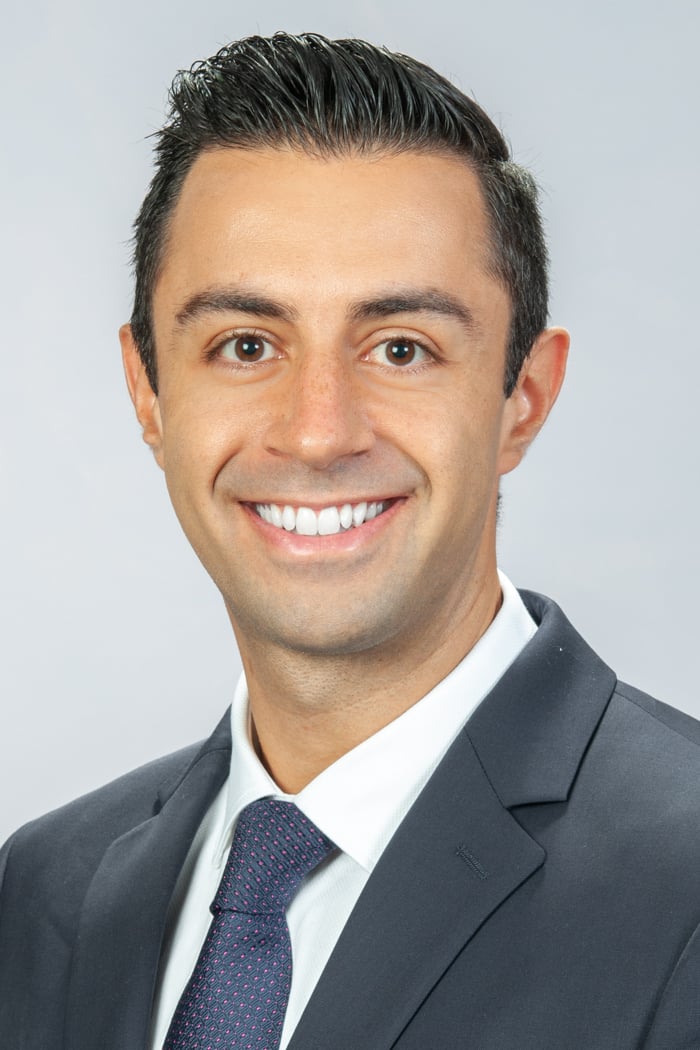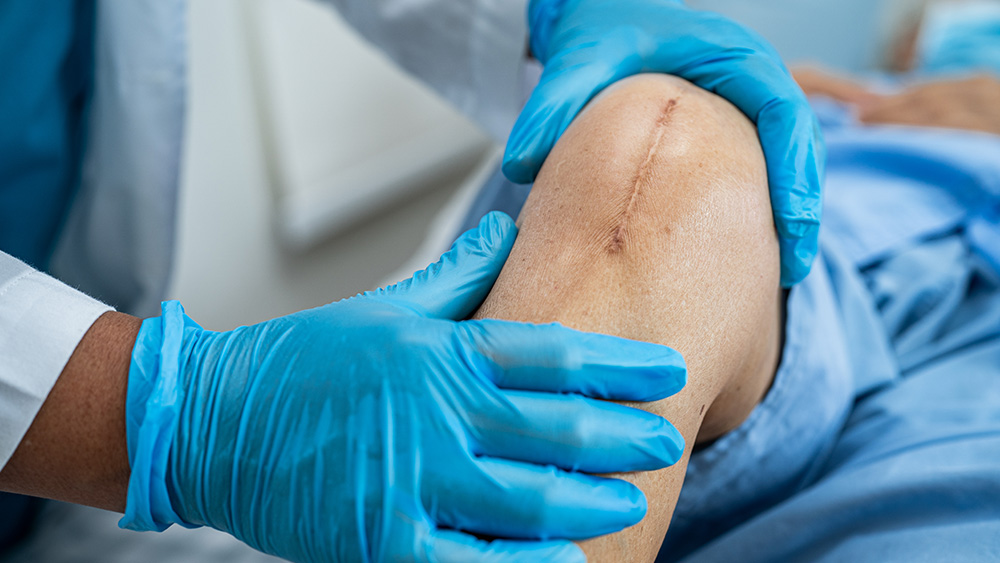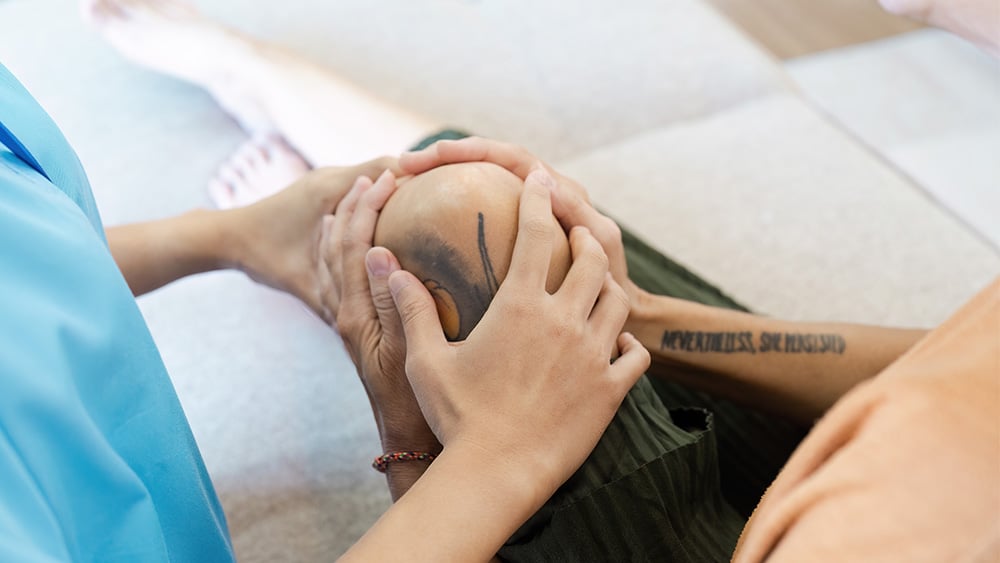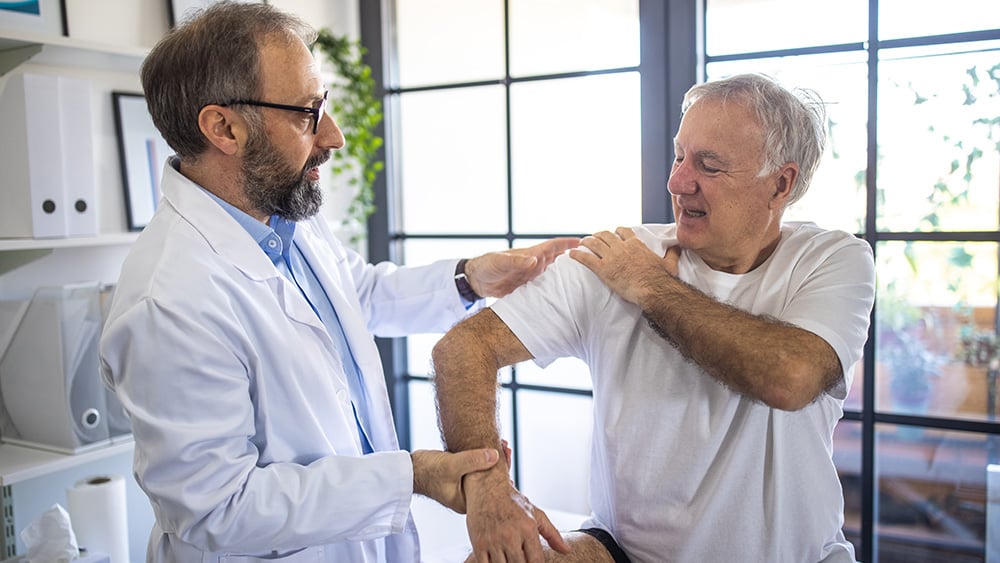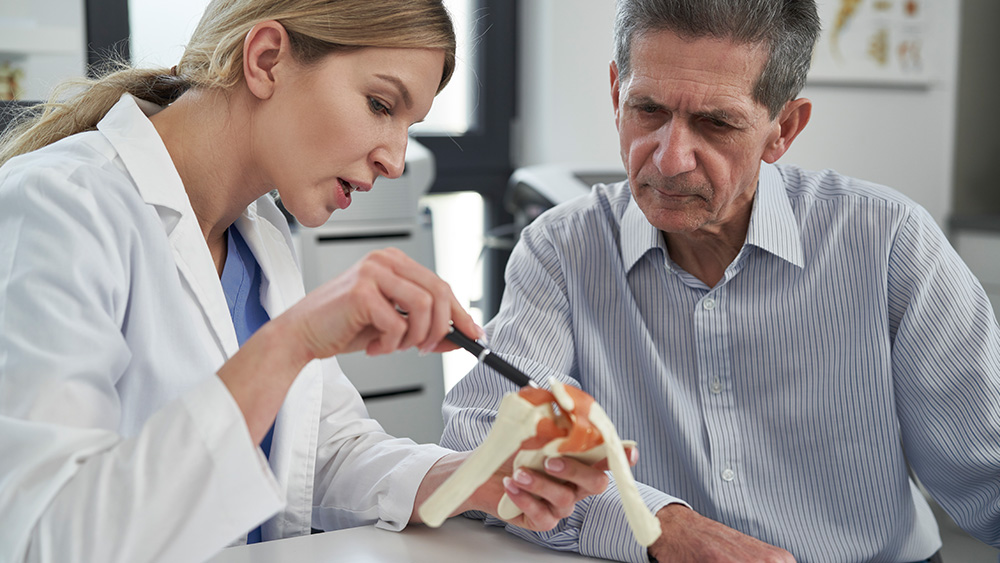Key Takeaways
- After a shoulder replacement, patients are immobilized for 6 weeks in a sling.
- Engaging in physical therapy before and after shoulder replacement surgery can help maintain strength and mobility.
- Listen to your body and take extra time if you need it. Pushing through the pain will not lead to a better outcome in the long run.
Some shoulder replacement patients may feel frustrated with how long their body takes to recover and wonder what they can do to help their shoulder recover more quickly.
Rami Elshaar, MD, is an orthopedic surgeon and Medical Director of Shoulder Surgery at Rochester General Hospital. He offers insight into what to expect after a shoulder replacement surgery and suggestions for what can help you recover as soon as possible.
“After shoulder replacement surgery, most patients return to their normal activities with a regular range of motion within 3-4 months, although patients can continue to improve for over a year after surgery,” Dr. Elshaar said.
What happens after shoulder replacement surgery
All patients are typically immobilized in a sling for six weeks following a shoulder replacement. Within 24 hours of the surgery, an occupational therapist will visit your home to ensure you are able to stay safe while doing daily tasks like getting in and out of chairs and bed, eating, and other activities.
After the six-week immobilization period, patients can remove the sling and begin outpatient physical therapy. Our orthopedic surgery specialists work closely with their colleagues in physical therapy and rehabilitation to create personalized plans for each patient that will help them regain control, strength, and mobility.
“By the time you are three to four months post-surgery, you should have most of your range of motion back and be able to do almost everything you want to do,” Dr. Elshaar said.
Tips for a quicker shoulder replacement recovery
Do the work before surgery: Engaging in physical therapy exercises and stretches before your shoulder replacement prepares your body to recover. Ask your primary care provider or orthopedic team about stretches. The American Academic of Orthopaedic Surgeons offers stretching and strengthening exercise guides that don’t require special equipment or weights. The stronger your body is before your surgery, the stronger you can be after surgery.
Don’t use the affected arm: During the first six weeks post-surgery, avoid using the affected shoulder in any way. This includes pushing off on, leaning on, or lifting that arm. Using the shoulder and the muscles and ligaments surrounding it before it is ready can slow the recovery process and set you back further.
Listen to your body: If the muscles around your implant start to feel inflamed or sore, take a step back. Doing too much too early can delay your recovery.
At the same time, if your shoulder feels good and you are not in pain or experiencing inflammation, it’s a good sign that your shoulder replacement is working as designed.
Don’t get discouraged: Every patient is different. Although there are general timeframes for recovery, some patients may have more limitations early on in recovery and may struggle with minor setbacks. With proper rehabilitation and working with your therapist and surgeon, these should improve with time.
“Your implant will be doing most of the work as time goes on and you continue to heal,” Dr. Elshaar said. “You will continue to progress in your recovery, even if you do have some setbacks.”
Our physical therapy teams work closely with our orthopedic surgery teams and are available to answer questions about your progress, pain, and recovery. If you need to adjust your post-surgical plan, our providers can help with any questions you may have.

